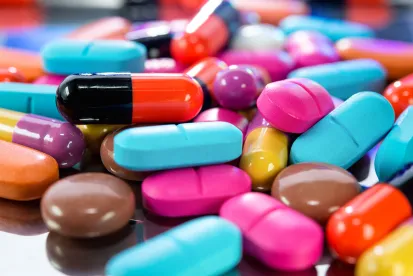The EU-UK Trade and Cooperation Agreement (the Agreement), announced just before Christmas, has now been agreed by the UK Parliament and EU Commission. This is now in place with a requirement for further approval by the EU Parliament. The Agreement is wide-ranging but in terms of trade mainly focusses on the supply of goods. As one of the most highly regulated sectors, pharmaceuticals are highlighted in a number of areas with specific provisions that touch on regulatory and intellectual property matters.
Most importantly with respect to pharmaceuticals, Annex TBT-2 of the Agreement provides that there will be recognition of Good Manufacturing Practice (GMP) inspections for medicinal products carried out in the other party’s jurisdiction, i.e. across the UK and EU.
These checks are important in relation to manufacturing obligations and controls, and the Annex contains further provisions that give discretion to a party to recognise GMP inspections carried out by the other party and undertaken outside the inspecting party’s jurisdiction. This could apply to sites located in the rest of the world, outside the UK and EU.
The above provisions are akin to those found in a traditional Life Science Mutual Recognition Agreement. Further detail in the Agreement indicates that inspections may be not be accepted for a narrow range of reasons, owing to the quality of the inspection and product safety.
For the purpose of Annex TBT-2, the EU parties are listed as the regulators of the UK and remaining 27 EU member states.
Going forward and to aid transparency, the Agreement also provides that each party shall notify the other party at least 60 days before adopting any new measures or changes relating to any relevant laws concerning GMP. If one party considers that it can no longer recognise the inspections carried out by the other, it shall notify its intention to trigger a partial or full suspension in an objective manner, with notice of the proposed move providing opportunity for dialogue.
Importantly, Annex TBT-2 provides that it will apply to all marketed medicinal products, APIs for medicinal use, ATMPs and IMPs.
In relation to intellectual property, the main provisions are contained in Title V of Part TWO of the Agreement and as usual this references the TRIPS agreement.
In terms of trade in medicines, the Agreement makes clear that each party may determine its own position in relation to exhaustion of intellectual property rights.
The Agreement allows for patent term extension and each party shall provide a period of additional patent protection (an SPC) to make up for the time elapsed in applying for and being granted a relevant marketing authorisation (MA). The length and conditions of such patent term extension can be determined independently by each party.
Both parties are required to protect commercially confidential information submitted to obtain an MA against disclosure to third parties, unless steps are taken to ensure that the data are protected against unfair commercial use or except where the disclosure is necessary for an overriding public interest.
Each party is also required to ensure that, for a limited period of time to be determined by its domestic law, the regulatory authority that granted a first marketing authorisation does not accept any subsequent application for an MA that relies on the results of pre-clinical tests or clinical trials submitted in the application to that authority for the first marketing authorisation.
Thereafter, the Agreement provides that each party shall also ensure that, for a limited period of time to be determined by its domestic law, a medicinal product subsequently authorised by that authority on the basis of the results of the pre-clinical tests and clinical trials submitted for the first MA is not placed on the market.
The above reflect existing and aligned provisions relating to patent term extension, data and market exclusivity, but allow for variance in the term and scope of these going forward.
Whilst the Agreement aligns existing provisions with scope for variance for intellectual property matters, it may also be the case that the mutual recognition on regulatory matters could indicate possible further developments in the area of pharmaceutical regulation.
This will become clearer in the coming months and especially as the temporary one year extension to alignment under the Northern Ireland Protocol nears its end.




 />i
/>i

